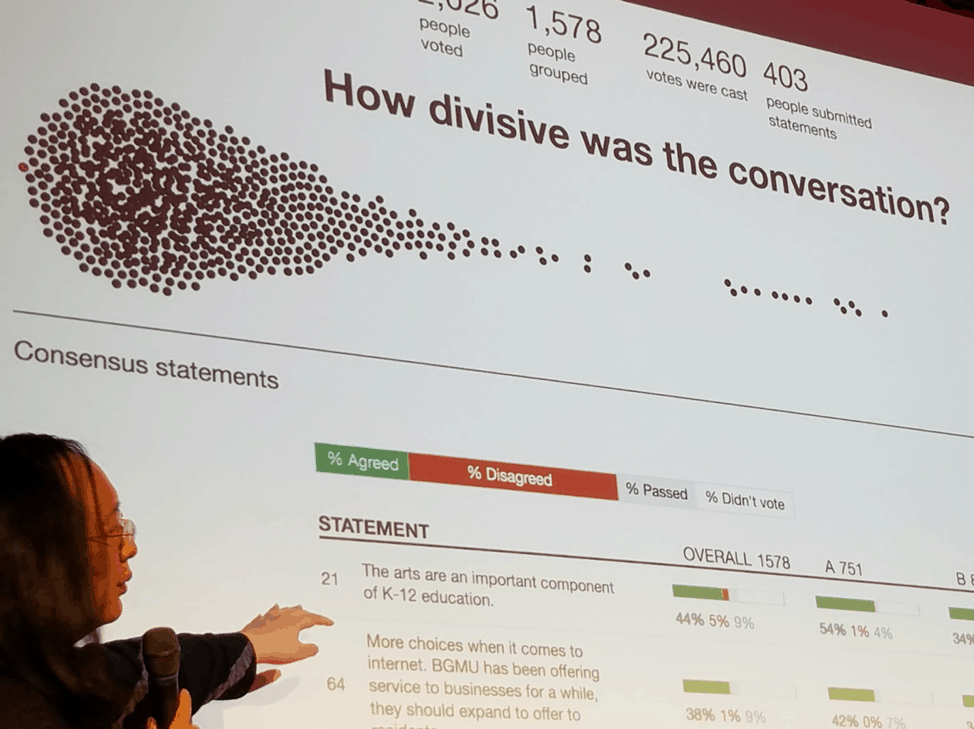Nathan Gardels is the editor-in-chief of Noema Magazine.
BERLIN — We are used to thinking of Silicon Valley as the be-all and end-all of tech innovation. But elsewhere in the world there are good souls laboring to make the world a better place beyond the narrow aim of becoming an instant unicorn through developing any app necessary.
Tim Berners-Lee, the disillusioned inventor of the World Wide Web, is working hard to re-decentralize the internet and return control of our data to ourselves. In Italy, the internet-based Five Star Movement’s Davide Casaleggio is designing digital tools to enhance participatory democracy and create smart companies. There’s the young and impressive Angelica Anton, the founder of SILK-Ventures, which provides funding to take startups to scale that, for example, use artificial intelligence and blockchain technology to detect deepfake imagery or enhance the United Nations Sustainable Development Goals.
At a RadicalxChange conference in Berlin this week, held in an old factory near where the Berlin Wall once stood that is now a co-working space for tech entrepreneurs, the other internet culture on the cutting edge of social and political innovation was on full display.
Shiv Malik of Streamr, which provides infrastructure for individuals to collectively monetize their data, introduced a forthcoming app, Swash. It is, essentially, a “data union” (like a labor union to collectively bargain with big tech) that makes it possible to aggregate certain data and enables its sale on a real-time, decentralized data marketplace while respecting personal privacy. Trent McConaghy, CEO of Ocean Protocol, spoke about how decentralized autonomous organizations can create “a locked, open data economy” that allows individuals to gain access to control of their data through the self-managed distributed ledger of blockchain. Sean Moss-Pultz, CEO of Bitmark, which aims to create a universal system for digital property rights, described a new app, Spring, that enables people to reclaim and control the data Facebook has accumulated on them. He argued for aligning tech to governance, not the other way around.
On the political innovation front, Vitalik Buterin, founder of open-source Ethereum, explained how quadratic voting works, by which “gitcoins” can be variously deployed to weight preferences in determining the provision of public goods. Deora co-founders Max Kuch, Johann Barbie and Simon Weniger rehearsed how they used quadratic voting to help the independent pan-European Volt Party set the policy priorities of its governing manifesto.
Audrey Tang, the digital minister of Taiwan, was the star of the show. The transgender minister outlined how the annual presidential hackathon, born out of the Sunflower protest movement of 2014, engages nearly 10 million citizens each year through a digital deliberation platform to reach consensus on key issues that then guide parliament and government policy. “Data collaboration” through “radical transparency,” instead of centralized data control, is the motto of her office.
Minister Tang offered this coda as the alternative to Silicon Valley:
When we see “internet of things,” let’s make it an internet of beings.
When we see “virtual reality,” let’s make it a shared reality.
When we see “machine learning,” let’s make it collaborative learning.
When we see “user experience,” let’s make it about human experience.
When we hear “the singularity is near,” let us remember: the plurality is here.
A lot is going on outside the zero-sum competition between the surveillance capitalism of the West and the surveillance state and Great Firewall in China. The best hope for wired humanity rests not in the outcome of this battle, but in the innovative pioneers of the other internet culture that is beginning to emerge from the shadows of the giants.




